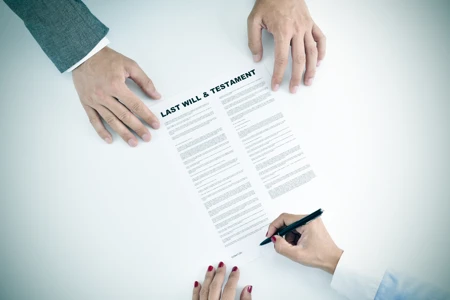There are several situations where revoking a will may be feasible. For instance, changes to your circumstances – such as marriage, divorce, or the birth of a child – may impact what you decide to do with your property following your death. While the reasons for changing a will may vary, it’s important to know how to reflect your current intentions in your will should you decide to alter it.
Legal effect
A person can always revoke their will while they’re alive and have the legal capacity to do so. A clause in a will indicating that it cannot be revoked has no legal effect.
The person who made the will can still revoke it. The destruction of the original signed will, combined with the intention to revoke, is deemed as a valid means of revoking.
If a solicitor has drafted your will, or if you drafted it on your computer, there may be an electronic version of the will available. If you intend to revoke the will by destroying it, you might want to ensure that any electronic versions are deleted/amended to reflect the fact that the will is no longer valid.
Revocation clause
When a solicitor drafts a new will, they will usually include an express revocation clause, indicating that any old wills are revoked by the new one. Even if you intend to keep elements of an old will, it’s generally regarded as good practice to produce a new document that includes any provisions of an old will that you wish to retain.
Marriage and divorce
If you get married or enter into a civil partnership, any will that you may have made prior to doing so is automatically revoked. An exception to this rule is a will that you’ve made in anticipation of the marriage to, or civil partnership with, the person involved. On the divorce or annulment of a marriage, or the dissolution of a civil partnership, any gifts to the spouse or civil partner in the will automatically lapse. The rest of the will may continue to be valid, however.
Certain events, such as divorce or the creation of a later will, can partially or completely revoke the will by making certain terms of the will ineffective. If a person gets married or enters into a civil partnership, their will is automatically revoked - unless it was made in anticipation of the marriage or civil partnership.
Make sure your wishes are carried out
Some people put off making a will until they’re in the later stages of life. Creating a will can save your family unnecessary stress at what is already a difficult time, as well as ensuring that your wishes are carried out in terms of who inherits what.
We've partnered with Carr Mitchell, an online Wills specialist. Try their 30 second questionnaire to help find the right Will for you:
Get started
Related articles
No posts currently available
No posts currently available

